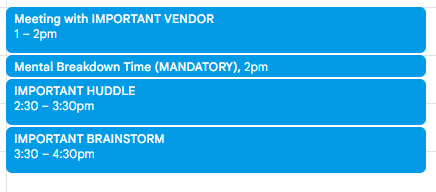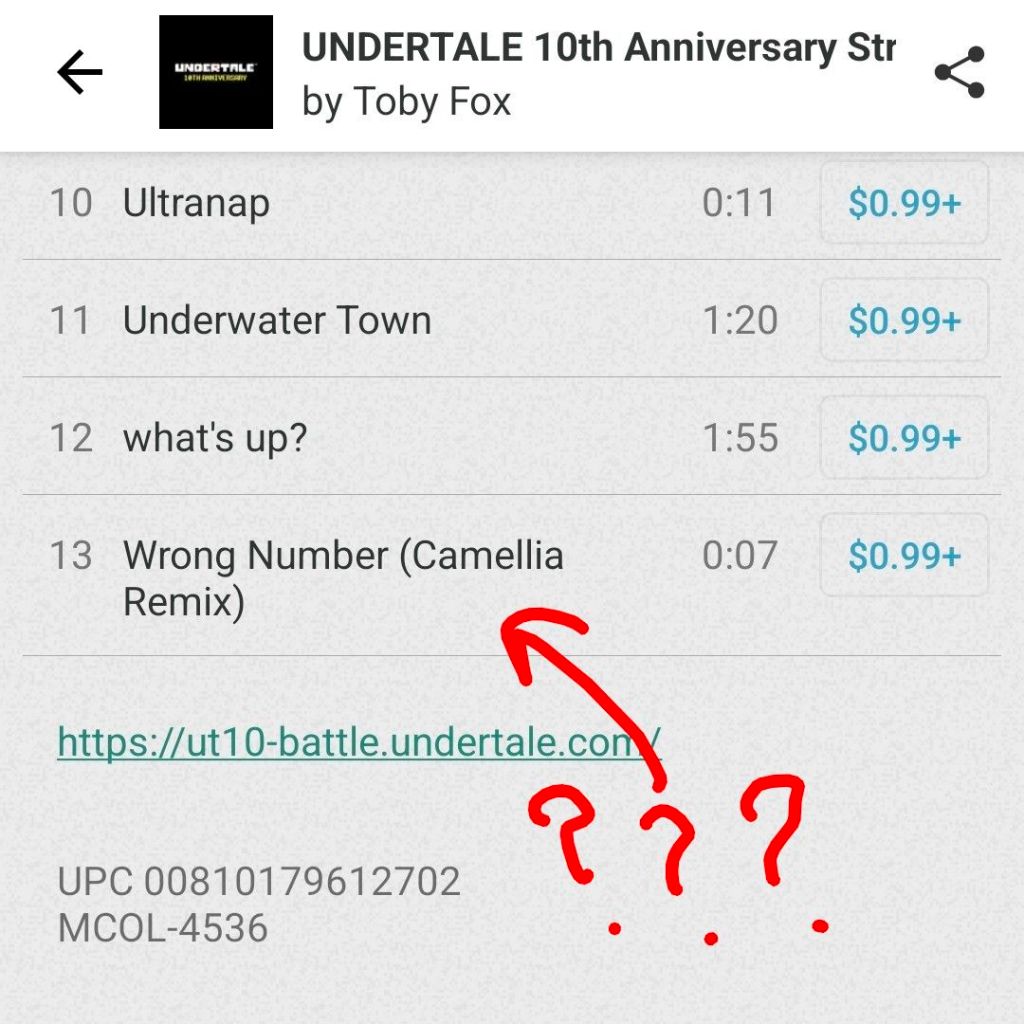“Rain is a very special blessing,” my mother says. Even when I was little, she’d already been saying it to my sister and me for as long as I could remember. Just as my grandmother had said it to her, when my mother was not my mother but only herself, in the dry Texas summers of her own childhood. Eons ago and continents away, as children reckon these things.
Continue readingFreedom (of Speech) Means Everyone
The trouble about fighting for human freedom, is that you have to spend much of your life defending sons-of-b*tches; for oppressive laws are always aimed at them originally, and oppression must be stopped in the beginning if it is to be stopped at all.
Everyone knows that censorship is bad. That’s why nobody calls it censorship unless it’s their opponents doing it–they’ll call it something like “defending truth” or “protecting minorities” instead.
I’ve seen way too many fellow liberals argue for the criminalization of pornography and/or sex work. (This isn’t what the whole post is about, but I gotta start somewhere.) When it’s phrased in terms of protecting women and children, it’s hard to argue against. No feminist wants to defend the toxic and degrading attitudes towards sex and women that mainstream pornography models, and nobody with a grain of moral integrity or social self-preservation wants to be seen as encouraging slavery, or the abuse and exploitation of women and minorities. But I worry, now that the ruling faction has made criminalizing porn seem actually doable, that those friends might miss the bigger picture.
Make no mistake: the recent crackdowns on adult content–delisting games from Steam and itch.io, stricter age verification on both adult and all-ages websites, increased pressure on payment processors to vet (read: abandon) vendors of adult media, etc.–aren’t really about protecting children or women. They’re about criminalizing sexuality.
Going after pedophiles, pimps, and perverts is just an excuse. As you’re undoubtedly aware, they’re also going after trans people, homosexuals and queers, scientific research on sex, abortion protections, and the sex workers themselves. Do you think they’re going to stop there? Letting them tamp down the fringes of society just shrinks the fringe. Promiscuity. Fetishists. Premarital sex. Divorce. Domestic abuse protections, including spousal rape. Art depicting sexuality of any kind. Birth control. It’s not paranoia, it’s spelled out in black-and-white in the Project 2025 playbook, which our current administration has been following almost to the letter.
(This is where I transition from talking about porn to talking about the kinds of left-wing censorship people get in real fights over.)
Humans are political animals, and it’s natural–commendable, even!–to want to silence bullies who are causing legitimate harm. But a person’s capacity for harm doesn’t come from their words alone, it comes from the power others give them. A bully with more power than you can’t be silenced by force, and if you silence someone with less power than you, guess what: you’re the bully.
Yes, really.
If someone is causing harm, by all means work to put a stop to it–but never forget that as a human being, you will overestimate how justified you are in silencing–not just stopping–your political opponents. Remove their ability to cause harm, not their ability to disseminate their beliefs.
Restrictions on freedom of speech are the canary in the coal mine of fascist takeovers. “Cancel culture” was a far sight from fascism, but it shifted the Overton window on what sort of political tactics were deemed acceptable. Do you still believe (if you ever did) that it’s okay to fire someone for voicing a belief that’s unrelated to their job, not about a specific person, in their free time and on their own channels? Because the exact same justifications are being used now to harass and persecute critics of the government, to wipe out entire federal departments performing critical work, to threaten free journalism, and more. If you feel reluctant to defend free speech when the people speaking are gross, evil, embarrassing, assholes, wrong, whatever–please, please get over it. It is not, and never has been, about them. Something much bigger is at stake.
Freedom of speech is the irreducible foundation of any free government. We all implicitly understand its importance, even if we never put words to it. So much so that even the fascists will claim “free speech” as a justification for their actions–and many of them believe it, too! Which just goes to show how difficult a principle it is to actually stick to.
Part of the difficulty, of course, is that a lot of beliefs really will cause harm if acted on. And of course we want to stop people from spreading these harmful beliefs! It really, truly feels like the right thing to do, deep down in the bottom of your soul. But liberalism (and by “liberalism” I don’t mean “left-leaning ideology” or something, I mean the miraculous civil-war-prevention technology that was both the product and engine of the Enlightenment) is more delicate and counterintuitive than most self-proclaimed liberals realize. If you stop critically examining your urge to stifle harmful speech, you throw sand into the gears of a machine that’s saved the lives of nations.
Freedom of speech and belief is amendment #1 for a reason. Never hesitate to defend the inalienable rights of others–not even sons-of-b*tches.
It’s not them you’re really defending.
Filed under Essays
Spamton NEO First Try
For those of you who haven’t played Deltarune, this is a very cool and sexy thing I’ve done and you should be very impressed and want to give me lots of hugs and candy.
(Okay, so technically it was the first try on my second run…but still!)
Filed under Microblogging
I Love My Coworkers
One of the folks on our office’s GSA group chat posted this:

Filed under Microblogging
Wrong Number
The world is full of mysteries. Some may one day be solved, while others may outlast the lifetime of the universe.
For example: who the hell is “Anne,” and why does she keep giving people my phone number??
I have been getting calls from strangers asking for “Anne” for the last fifteen years or so. Does she honestly not know her own phone number? Do our numbers just happen to be one easily-confused digit apart? Or does she think she’s giving a “fake” number to people she doesn’t want to be contacted by?
Anne, if by some chance you’re reading this: PLEASE STOP GIVING MY PHONE NUMBER TO STRANGERS!
Filed under Microblogging
Whose Wrong?
When our daughter first started talking, we began asking her what she wanted to be called. My spouse and I had decided that if she wanted to pick a name other than the one we gave her, that was her right.
At first, she experimented quite a bit, and as you might imagine there were some…questionable choices. It was embarrassing at times–I wrote “Car Racecar” on more than one official school form–but we trusted that as she learned and matured, those childish phases would pass. Sure enough, she eventually settled on a lovely, sensible name (one my spouse and I, by pure coincidence, had considered ourselves!) and she’s been happy with it ever since.
It’s unusual, I admit. It’s not a path I would recommend for every family. But I believe it was the right decision for us, and for her.
Every once in a while, we would also ask her what pronouns she wanted to be called. We’d frame the question in the same way we were phrasing questions about her name: did she want us to keep using the one we gave her when she was born, or did she want to be called something different? Just like with her name, there was a bit of experimentation at first, and just like with her name we trusted that if it were a phase or a mistake, she would grow out of it on her own. Long before she settled on a name, she was confident that yes, she really did want to be called “she,” “girl,” “daughter,” and so on. That was about five years ago.
It had been a while since we’d checked in on her decision, so I recently reminded her that she could always tell us if she ever changed her mind. She responded, sounding quite confused, “Why do you think I would change my mind?” Why, indeed. Her girlhood is as self-evident to her as the color of her hair.
Her birth certificate is marked with an “M.”
Many people would be outraged to hear this. They would say we are enabling a delusion or a mental illness. Our current President, in a proclamation issued for National Child Abuse Prevention Month, claimed that so-called gender ideology is “one of the most prevalent forms of child abuse” in the country. Gender extremists, he said, are telling children “the devastating lie that they are trapped in the wrong body.”
Now, I could point out that under-eighteen rape victims outnumber trans kids nearly thirty to one, but that’s ultimately a quibble. All forms of abuse should be prevented, regardless of their prevalence. The real problem with this claim is the assumption that if my daughter is trans, it must be because I’m telling her she’s “trapped in the wrong body.”
Guess what? My daughter loves her body. She loves climbing and running and playing outdoors, she loves being strong, she loves being fast (the second-fastest girl in her class!) The only time she has expressed any distress over her biology was when she came home from school one day and told me she wished her voice were higher. When I asked her why, she said it was because a classmate had told her she “didn’t sound like a girl.”
So it’s true, there are people saying my daughter’s body is wrong–but it is not the people calling her by her chosen name and gender. It’s the people who would tell her that, because of her body, she doesn’t count as a “real” girl; that because she was born with a certain biology, her girlhood is fake, a delusion, a lie. When trans kids are told over and over again that their bodies are the reason their transness is rejected, is it any wonder so many of them end up feeling trapped? I can’t help but wonder: if more people believed, as my daughter still does, that a girl with a penis is perfectly unremarkable…would fewer trans people feel a need for surgeries and hormones? Would more of them be happy with their bodies, if we didn’t insist that one’s gender and biology “match?”
Someday soon, I know my daughter will ask me if she can play sports with her friends. It would be nice to know I’ll be able to tell her “yes”–but that’s not the question that really keeps me up at night. The real question is: will my daughter be allowed to be my daughter? When she tells people she is a girl, will she be heard and respected, or will she be harassed, ignored, bullied, and ridiculed? Or worse, will she be stolen away from the loving family she was born into under the pretense that using the “wrong” words to address her is abuse?
The President ended his proclamation by saying “my message to every American child is simple: you are perfect exactly the way God made you.” The part he didn’t say, of course, was “…unless you were made intersex, trans, queer, brown, neurodivergent, or just generally Different. Those kids need to try harder to be perfect, like the rest of us.”
Who’s telling kids they’re in the wrong bodies, again?
Filed under Essays
Guest Post: “Zeus and Pacific”
This story was written by my daughter when she was learning about mythology at school. I’ve corrected the spelling and capitalization, but made no other changes. Enjoy!
Pacific was in a very powerful, indestructible space ship. Zeus did not like indestructible things, so Zeus made a storm, and the lightning STRUCK Pacific’s ship down. The ship traveled for miles and miles. When Pacific’s ship crashed into the ground, it made a big big BIG hole. Even though his ship was not too big, the hole was as BIG as the biggest ocean yet. Over time when it rained, it filled up the hole and became the Pacific Ocean, and that is how the Pacific Ocean came to be. The end.

Filed under Fiction
Lullaby
Before I was ready to call myself an atheist, I used to say that music was my religion.
I grew up with music; one of my father’s many careers was as a musician and there was nearly always something on the radio or record player when I was little. Folk, rock, and classical mostly, but those are such broad genres that in practice I was exposed to a little of nearly everything.
There was always a guitar in reach, or other instruments: flutes and recorders, small drums, a keyboard. A child’s dulcimer complete with follow-along sheet music you could fit right under the strings, and blank sheets to write your own songs with. Later, a gorgeous old upright piano.
And, of course, singing.
One of my earliest memories–quite possibly the earliest memory–is of the lullaby my mother used to sing to me and my sister, starting when we were still infants. I sing it to my own children, now. She got it from a book on baby massage; it’s in another language and I never learned what it meant.
When our oldest was an infant herself, right after we’d moved out of the studio apartment we’d lived in when she was born, I spent one long night rocking her back and forth as I paced the dark apartment, humming the most soothing tones I could invent, silently begging her to stay calm just a little longer, so her renny could get some desparately-needed sleep.
One pattern of notes in particular started to repeat itself, a sort of melancholy tune, fitting for a lullaby. I spent much of that night working on it, infant in arms: getting the melody just right, coming up with words I could put to the notes. It was the first song I’d written since that old dulcimer I’d had as a child.
I named it “Stars.”
When planet Earth stops turning
When all the stars go dark and cold
When Time itself is ending
My love for you will still burn bright
My love for you is infinite
When planet Earth was stardust
When all the stars were newly born
When Time itself was waking
My love for you was ancient
My love for you is infinite
Climb to the highest mountain
Dig to the planet’s molten heart
Fly to the constellations
My love for you’s already there
My love for you is infinite
Count every rock and raindrop
Span every cell and galaxy
Weigh every star and black hole
My love for you is vaster yet
My love for you is infinite





